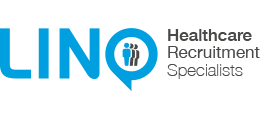
09 Jan CV Writing Tips
At Linq Healthcare, we appreciate that sometimes one of the most intimidating parts of applying for a job can be writing a CV and knowing what to include / not include to make you stand out during a recruitment process.
The below is a guide to some of the main things we recommend you including, but should you want help with writing your CV (or a copy of our CV template), please reach out to a member of the Linq team on 0161 924 1433 or info@linqhc.co.uk.
CV Overview
Whilst your CV needs to include specific details relevant to the job you are applying to, it should also be relatively concise – standard CVs are typically around two pages long.
Ensure you discuss both hard and soft skills in your CV, some examples would be:
Hard skills: Patient assessment, technology skills, medication management
Soft skills: Communication, time management, confidentiality
Try to evidence everything you say on your CV – simply listing out some of these skill words will not give the Hiring Manager a true reflection of you and your ability.
Thinking about the format of your CV itself, the below is a guide to what should be included and support you in creating your template:
Personal Summary
This should be seen as an introductory paragraph to tell your future employer a bit about yourself.
Keep this summary exactly that, a summary – aim for around 100 words and think about your personal strengths, your experience and what you are passionate about.
Don’t be afraid to point out what you excel at – this is your opportunity to ‘boast’ and make yourself stand out.
Top Tip: Where possible, tailor this section to the specific job you are applying to.
Work Experience
Starting with the most recent, detail your employment history, ensuring you include (for each role):
- Job Title
- Employer Name
- Dates of Employment
- Summary of your main duties and any responsibilities
Again, keep these at a summary level, so include the most relevant areas to the role you are applying to.
Top Tip: Bullet your duties and responsibilities to make it easy for the Hiring Manager to understand your experience.
Education, Qualifications and Professional Training
Starting with the more recent, list your qualifications and Professional Training, ensuring you include (for each qualification):
- Qualification / Training Tile
- Awarding Body
- Grade (if applicable)
- Date awarded
Top Tip: Consider also including any volunteering in this section.
Additional Information
This is an area to cover off any additional information that might be relevant to your application – for example, if you hold a driving licence or speak any other languages.
Top Tip: Only include this section if you do have something valuable to add.
References
Consider adding up to two references on your CV – if you have not made your current employer aware you are looking for a new role, either add in previous line managers or simply note ‘On Request’ and discuss this at interview stage.
Linq is dedicated to supporting your career in Nursing and AHP. If you are ready to take the next step on your career, please take a look at our current vacancies or register with us.

